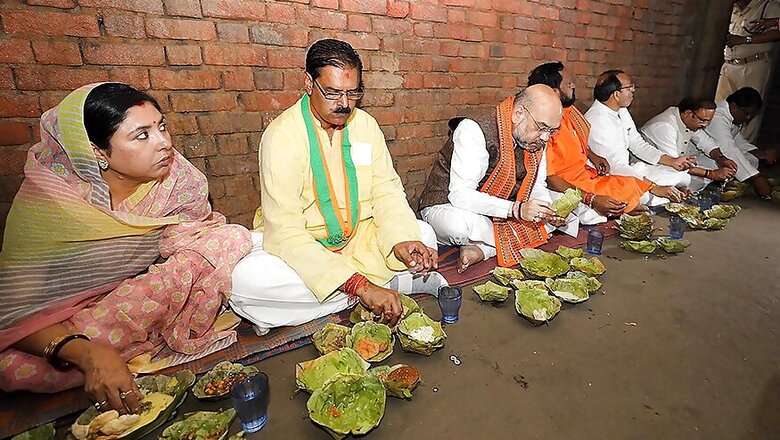
views
The BJP stands stumped by 'The Dalit Question'. All mainstream political parties, in fact, are floored at the strength and reach of the closely networked Dalit organisations across India, evident in the protests against the perceived 'dilution' of the SC/ST (Prevention of Atrocities) Act earlier this month.
The agitations were not aimed so much at the Centre or the Supreme Court, as the politics of patronage and condescension. Tokenisms, like Rahul Gandhi's meal in a Dalit household in Mau, or BJP president Amit Shah's ceremonial dip in the Shipra with Dalit sadhus, will not suffice. The emergence of successful Dalit entrepreneurs and writers, enabled by digital technology and a diversified economy, is a visible aspect of the newly assertive subaltern narrative.
That said, which way will the Dalits vote in 2019? Conventional wisdom has it that the dalit vote will split. Under Narendra Modi, the BJP transcended its brahmin-bania roots and projected itself as a party of the OBCs, committed to empowerment of the socially deprived. In this, it was supported by the RSS' 'samajik samrasta' (social harmony) campaign.
As a result, the BJP won nearly half the SC seats in Parliament and gained substantially among Dalits (12 per cent overall, but more in the Hindi belt). All the 17 reserved seats in Uttar Pradesh went to the BJP, in the teeth of India's most dominant Dalit party. It forged alliances with small Dalit parties like the LJP, Hindustani Awam Morcha, Suheldev Bharatiya Samaj Party and RPI, and filled its ranks with Dalit leaders, some seduced from the BSP.
Yet, it is on the BJP's watch that Dalits have been attacked and/or killed for sporting a moustache, skinning a dead cow, riding horses or watching a garba; Bhim Army chief Chandrashekhar Azad was arrested and a Dalit groom needed state intervention to ride to his wedding through an upper caste locality.
In addition to the death of Rohith Vemula and a string of highly publicised atrocities against Dalits, we have had a ban on sale of beef in two states and a short-lived ban on sale of cattle for slaughter, which hit the community economically.
The unrest is palpable: recently, Mahadalit leader Jitan Ram Manjhi has gone over to the opposition, the Suheldev BSP is openly expressing unhappiness with the BJP and a Dalit MP from UP complained to the PM against the 'thakur' chief minister.
Such betrayals are hard to overlook. On the other hand, the Congress continues to be a party of the upper castes and classes. But where there is no third option, the Dalit votes will perforce go to one or the other.
The BJP has strained every nerve to present itself as an inclusive party. Dalit icon B R Ambedkar has had a 'cashless' payment app (BHIM) and an international think-tank named after him, pilgrimage centres set up in his honour and statues put up in Lutyen's Delhi. Taking to heart the motto of the Dalit India Chambers of Commerce & Industry (DICCI) president Milind Kamble – “defeat caste with capital” - the government set up a venture capital fund for Dalit entrepreneurs.
Despite these efforts, there is no gain saying the fact that the BJP has lost traction among Dalits in the Hindi belt. Ideology appears to have little to do with it. Liberals enjoy pointing to the contradiction between Dalits and the RSS' gauraksha agenda, but that didn't stop the party from doing spectacularly well in the North-East and UP.
It is the BJP's incompetence in protecting Dalit interests, perhaps owing to caste contradictions within its own set-up, which has sparked anger. Besides, the BJP-led government is at that peculiar point in its tenure, when it is held accountable for anything that goes wrong, whether or not it is directly responsible.
The immediate question for the BJP is whether it can win over the Dalits of Karnataka, who have been split between the two national parties, depending on whether they are “right hand” or “left hand”. It's certainly trying, by projecting a Dalit as deputy chief minister and seeking the support of the Dalit mutts, but the Congress is believed to have an edge.
This achieves importance amid reports that the caste census ordered by CM Siddaramaiah found the Dalits, rather than the Veerashaiva-Lingayats, have the dominant vote share in the state. The JD(S) clearly bought into the survey, judging from its pre-poll alliance with the BSP.
Both national parties are on a slippery slope vis-a-vis the Dalit question. Conventional vote bank politics, based on sops and lip-service, will not answer in the long run.
(The writer is a senior journalist. Views are personal)












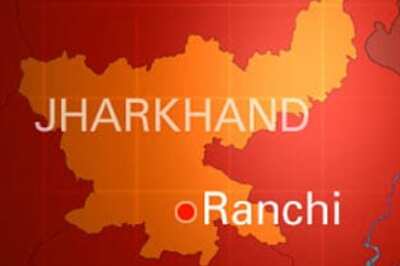
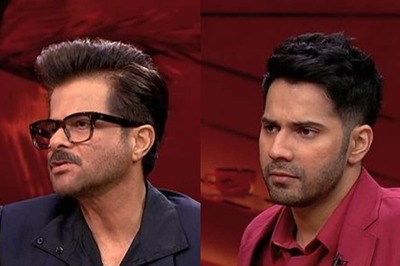



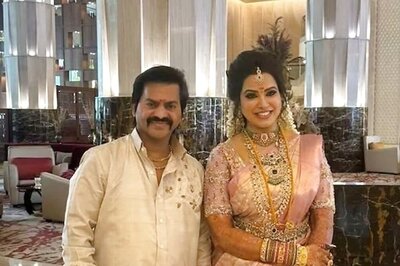
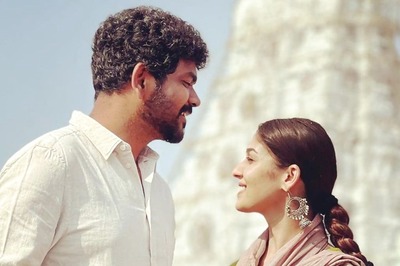

Comments
0 comment